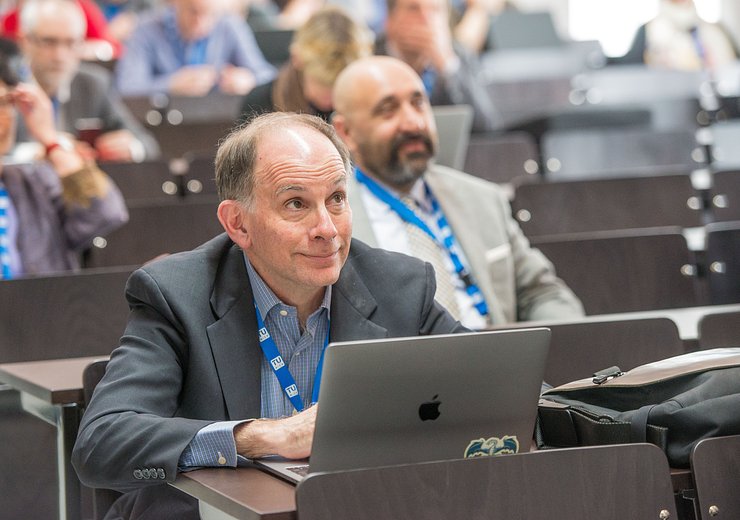Vienna Workshop on Digital Humanism: How Human Will Our Digital Future Be?
Digitalisation is permeating all spheres of life - how can we deal with this transformation of our society?

Picture: Arnold Mike / TU Wien Informatics
Digitalisation is permeating all spheres of life - how can we deal with this transformation of our society? Together with the Vienna Science and Technology Fund and the Magistrate’s Department for Economics, Labour and Statistics, the Faculty of Informatics has organised the first international workshop on Digital Humanism on April 4-5, 2019, in Vienna, in order to discuss the challenges and chances linked to that topic. Renowned scientists from multiple disciplines discussed critical thoughts, reflected on new developments and published the Vienna Manifesto on Digital Humanism.
Digital Transformation of Society
Informatics and its artefacts are major drivers of change. We have witnessed the metamorphosis from the stand-alone computer to the global operating system of our world, a journey leading to yet another industrial revolution: everything is digitised. This digital and global operating system integrates, links, and permeates everything: work, leisure, politics, the personal, the professional, and the private. Today’s flood of data and algorithms is disrupting the very fabric of society by changing economies, social relationships, science and humanities, and also political structures. This disruption shifts power structures and there is a “Co-evolution between humans and machines,“ as Helga Nowotny, Professor emerita of Science and Technology Studies, ETH Zurich, puts it. “We have to prepare ourselves to deal with an increasing complexity and learn how to navigate through it”. Or, as computer scientist Moshe Vardi asks with regard to automated work: “What happens if we are all sourced out? Will there be enough jobs to compensate the loss of old jobs? Nobody knows. Automatization is changing reality, the questions is: how do we deal with it?“
At a Crossroads
Whereas the digital development opens enormous possibilities for our future, it also raises serious questions and has dramatic downsides, as there are the monopolies in the web or the use of the internet for surveillance. We are at a crossroads for our future - which direction are we to take? How can we manage to put the human at the centre and combine technological with social innovation in a democratic process? James Larus, Professor and Dean of the School of Computer and Communication Sciences at EPFL, thinks that “Pleas for restraint and ethics might have little weight in the commercial race.”
Make the Digital World More Human
The term “Digital Humanism” also refers to the era of the Renaissance. It is supposed not only to give the digital world a human face, but also to initiate a scientific approach integrating different disciplines. ICT facilitates and drives change, but it also needs rules and guidance, in order to keep technology for people and not the other way round. “Fostering a critical dialogue of different scientific disciplines and then translate it to politics,“ as Dean and main organiser Hannes Werthner recommended, might be a way forward: the goal of the workshop and further steps towards a Digital Humanism is to put in place pathways for human values to shape current and future technologies, to ensure fairness, inclusion, and informed diversity of opinion, and to enable leveraging of the technology to help solve global problems. “Put humankind at the centre of our work!“ is the motto of the Vienna Manifesto on Digital Humanism, which has been published as the result of the workshop.
More information on the Vienna Manifesto on Digital Humanism
Links
Curious about our other news? Subscribe to our news feed, calendar, or newsletter, or follow us on social media.




















